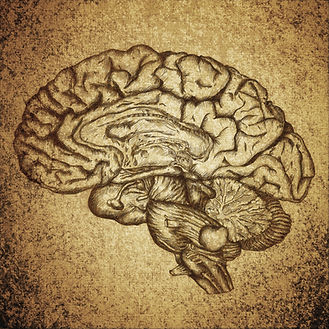
Anxiety
Anxiety can show up in our lives in a variety of ways dependng on how it starts, how long it lasts, and what it feels like. Perhaps you feel that anxiety has always been part of your life, for as long as you can remember. This might be due to heredity, early problematic attachment with parental figures, or early childhood traumas. On the other hand, maybe these feelings are new to you. Car accidents and other sudden distressing events, loss, and relationship problems are only some of the things that can produce anxiety in our lives.
Common Symptoms of Anxiety
-
Constant worrying or nervousness, sudden and/or overwhelming fear.
-
Sweating, trembling, heart palpitations or rapid heart rate, dizziness, chest pain.
-
Shortness of breath, feeling that you can never quite get enough air, hyperventilating.
-
Fear of dying or having a heart attack.
-
Restlessness, constant nail biting, inability to sit still.
-
"Butterflies," digestive or gastrointestinal problems.
-
Fear that others dislike you, that you're awkward, and/or that people are only friends with you because they feel sorry for you.
-
De-realization: Sensation of feeling detached from one's reality, often leaving you to feel that your surroundings are unreal, strange, or two-dimensional.
-
Dissociation: Sensation that you are living in a fog, tunnel-vision, confusion, feeling outside your body.

“Worry often gives a small thing a big shadow.”
—Swedish proverb

How Therapy Can Help
I work with anxiety using a combination of therapeutic methods. I pay special attention to what triggers your specific anxiety and what tools work best for you.
-
Somatic Approach Anxiety tends to live and fester in our minds and our chests. Using a somatic approach, we will work toward expanding and strengthening body awareness through tools such as grounding and orientation exercises.
-
Psychodynamic Approach This approach harnesses your self-awareness and insight in considering both conscious and unconscious material from your past and present. By increasing your understanding of the source of your anxiety, and how it manifests in your day to day life, changes can be made toward healing.
-
Cognitive-Behavioral Approach Cognitive Behavioral Therapy can help overcome the fear and worry of the mind by challenging your underlying beliefs about yourself, others, and the world. By shifting these beliefs, you can also shift the ways you feel and behave.
-
Relational Approach This approach can help with all forms of anxiety but is especially helpful with social anxiety. It takes inventory of your personal relationships, your self-concept within relationships, and focuses on vulnerability and communication.
